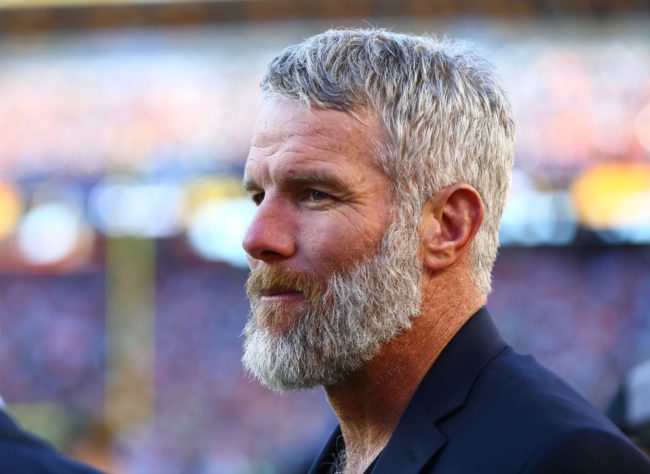
Earlier this year, Brett Favre was accused of colluding with government officials to divert millions of dollars away from infrastructure programs in the poorest parts of Mississippi. With these stolen funds, a state-of-the-art volleyball stadium was built at the university his daughter attends. Interestingly enough, the investigation that uncovered this startling information didn’t intend to find it. In fact, Favre was originally under scrutiny for his role in a drug company that was working to tackle the concussion crisis within football. Published earlier today, a recent report from Mark Fainaru-Wada of ESPN found that Favre’s role in the company is troubling as well.
More than a decade ago, conversations regarding head trauma in the sport of football were beginning to heighten. In response, Dr. Jake VanLandingham was inspired to develop a drug that could reduce brain swelling that can come from a blow to the head. Along this journey, he began working with a chemist and launched a company called Prevacus. More importantly, he began fundraising to offset the cost of drug development and FDA approval. Through “a friend of a friend,” VanLandingham met Brett Favre after he had appeared on TODAY and said that he was unsure if he would feel comfortable letting his son play football due to the threat of head trauma. Favre and VanLandingham’s working relationship developed over time and the former NFL star went from receiving stock options to becoming a “fairly large shareholder.”
From 2014 through 2018, Favre and VanLandingham began conducting media appearances to promote the work of Prevacus. Along their media run, the duo stopped by Megyn Kelly Today. During their conversation, Kelly asked if the drug was FDA-approved. According to Fainaru-Wada’s report, VanLandingham said it was “in the process of clinical trials.” Months after that interview, a lawsuit claims that Favre and VanLandingham met Nancy New and several others as they pushed to receive funding for their work. Within one year of their initial meeting, Prevacus and VanLandingham’s other company, PresolMD, received more than $2 million that was originally meant to benefit marginalized communities within Mississippi.
Over the last year, three people who attended the meeting and New have been arrested and charged with misusing state funds. Making matters worse, Fainaru-Wada’s report suggests that the drug Favre and VanLandingham have been touting is not proven to be effective in treating head trauma caused by contact sports.
“I looked to see what the evidence was, that it really does what they say it does. And there is none,” Dr. Steven DeKosky of the University of Florida told ESPN.
Despite accusations of diverting funds from welfare programs and touting an ineffective concussion drug, both Favre and VanLandingham maintain their innocence. VanLandingham told ESPN that “nobody’s sitting here [saying] this drug works in humans” and he had no knowledge that the fund New provided him were for welfare programs. Meanwhile, Favre says that he has been “unjustly smeared” by media reports.
“I have done nothing wrong, and it is past time to set the record straight,” Favre claims.






